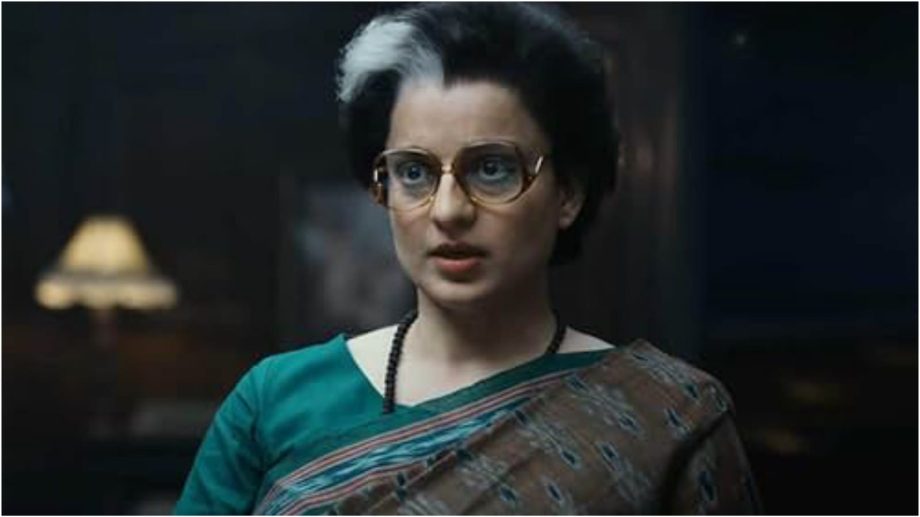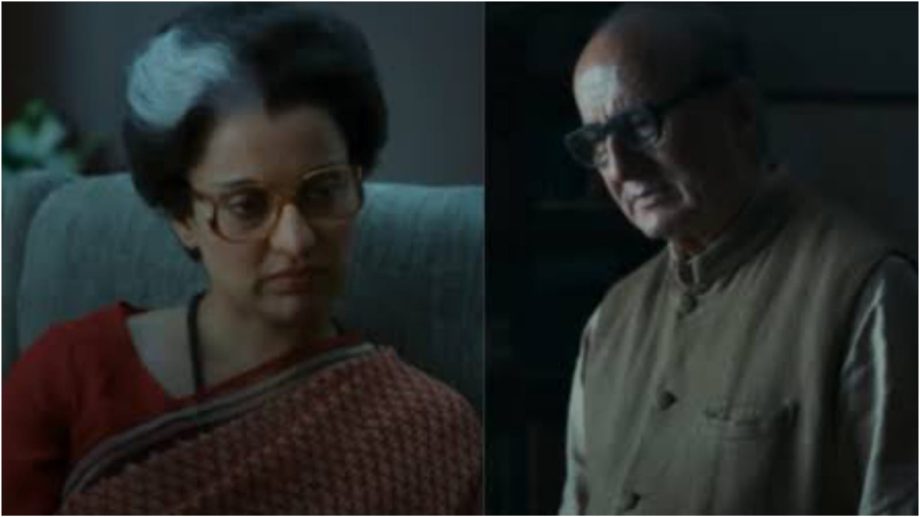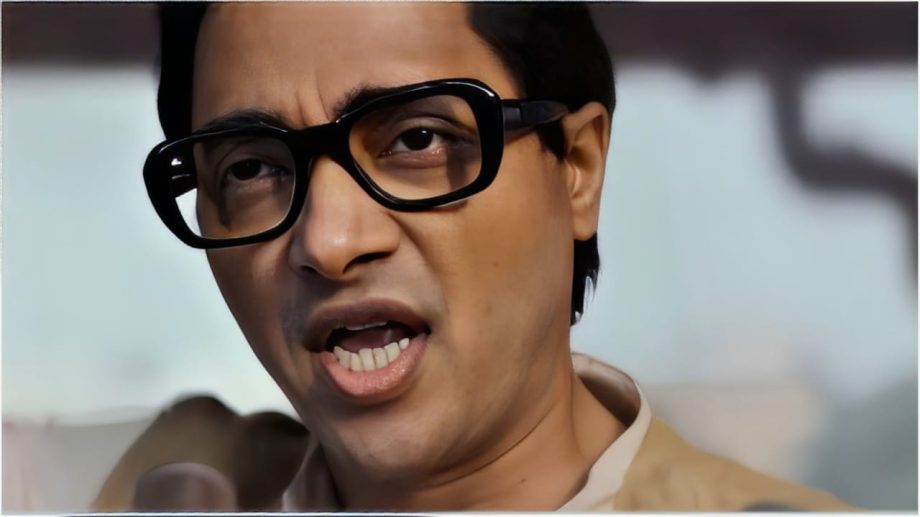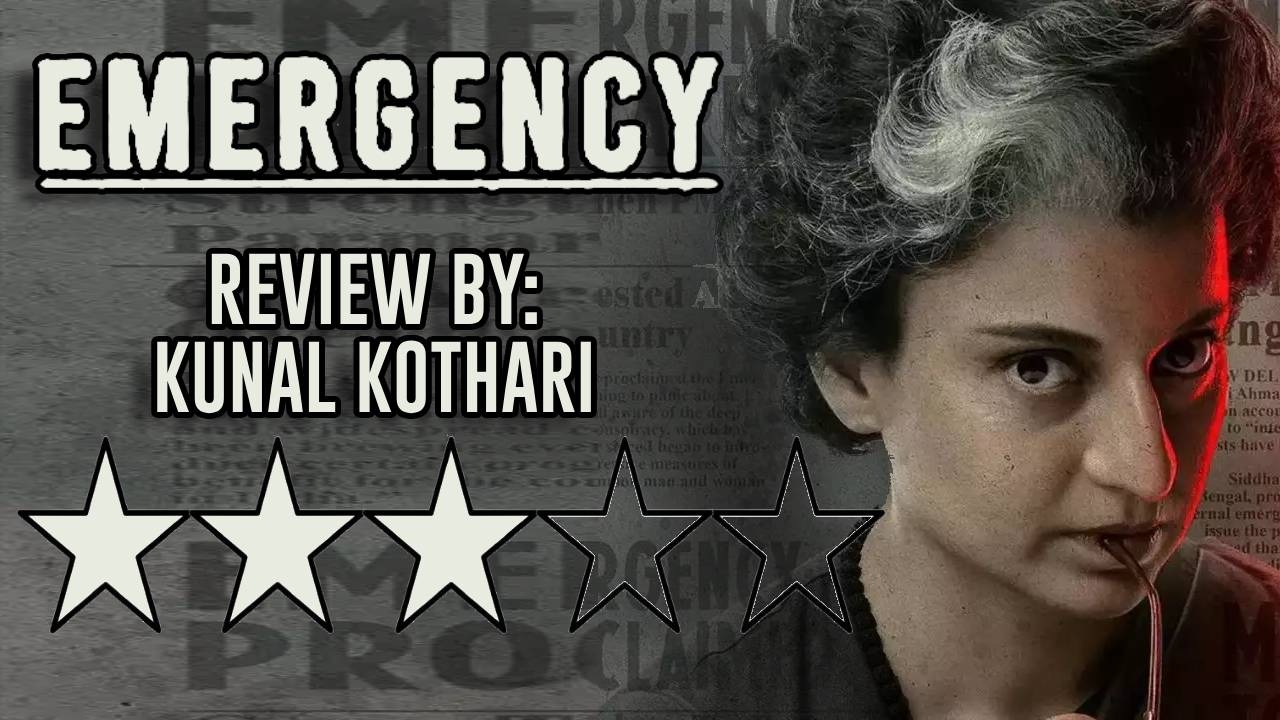Emergency
Rating – *** (3/5)
Cast: Kangana Ranaut, Shreyas Talpade, Anupam Kher, Milind Soman, Vishak Nair, Mahima Chaudhary & more
Directed by: Kangana Ranaut
When Kangana Ranaut initially unveiled Emergency, she emphasized that the film was not a biographical account of Indira Gandhi, despite its focus on the turbulent years of the Emergency (1975-77). However, as the film unfolds, it becomes clear that Gandhi’s life is at the heart of this narrative, delving into her personal and political journey with an extensive scope.
The film begins by tracing Gandhi’s early life, briefly touching upon her childhood and upbringing, before delving into her rise as a political leader. It offers glimpses of her relationship with her father, Jawaharlal Nehru, and her husband, Feroze Gandhi, setting the stage for the intricate web of her personal and professional dilemmas. Kangana portrays Indira as a leader caught in a battle between her need for control and the evolving political landscape of India.
Through its runtime of 2 hours and 28 minutes, the film explores significant events, including the imposition of Emergency, political alliances, and decisions that shaped India’s trajectory. Despite its title, the Emergency itself doesn’t dominate the narrative. Instead, it serves as one of many milestones in a sprawling story that spans Gandhi’s life, from her ascent to power to her assassination. While the ambition to cover such a wide canvas is evident, the depth and coherence of individual episodes are often sacrificed.
Central to the film is the dynamic between Indira Gandhi and her son, Sanjay Gandhi. The portrayal of Sanjay is unapologetically critical, depicting him as an opportunistic figure whose influence contributed significantly to the excesses of the Emergency. His involvement in forced sterilizations, evictions, and other controversial policies is portrayed as a reflection of his unchecked power. The narrative leans heavily on Sanjay’s actions, to the point where his story often overshadows that of Indira herself.

Sanjay’s personal life is also explored, including his marriage to Maneka Gandhi and his sudden death in a plane crash. These elements, while adding layers to his character, further dilute the focus on Indira Gandhi’s own journey.
At times, the film feels more like a study of Sanjay’s influence than a comprehensive exploration of Indira’s leadership during this critical period in Indian history.
The film’s structure struggles to balance its expansive scope. The first half takes its time building the narrative, occasionally dragging, while the latter half feels rushed, as it races through major events like Operation Blue Star and Gandhi’s eventual assassination.
This uneven pacing undermines the impact of pivotal moments, leaving them feeling underdeveloped.
Kangana’s depiction of Indira Gandhi is one of the film’s standout aspects. Her performance captures Gandhi’s complexity, oscillating between vulnerability and determination. Scenes where Indira grapples with self-doubt or reflects on her decisions add depth to the portrayal, though some moments lean towards melodrama.

The decision to sprinkle the narrative with scenes showcasing Gandhi’s introspection and humanity feels deliberate, perhaps to temper the film’s critical tone.
Vishak Nair’s portrayal of Sanjay Gandhi deserves recognition for its nuance and conviction. His character’s dominance in the story ensures that Nair commands attention, and he delivers a performance that underscores Sanjay’s contentious legacy.
Among the ensemble cast, Anupam Kher, Shreyas Talpade, Milind Soman, Mahima Chaudhry, and Ashok Chhabra deliver solid performances, each bringing authenticity to their roles.
Satish Kaushik, in his final film appearance as Jagjivan Ram, brings warmth and levity to the story. His performance is a reminder of his remarkable talent, and his character’s prominence in the narrative adds a touch of humanity to the otherwise politically charged storyline.
The film’s production values and attention to detail are commendable, with its visuals capturing the essence of the era. However, its treatment of historical events often takes creative liberties, framing the Emergency as a manifestation of Indira’s personal insecurities rather than a political decision.
While this perspective adds a psychological dimension to her character, it oversimplifies the complexities of the time, glossing over the broader societal impact of the Emergency.

Despite its efforts to balance critique with empathy, the film falls short in offering a comprehensive exploration of the Emergency’s ground realities. The struggles faced by ordinary citizens during this period are touched upon but lack the depth and focus they deserve.
Kangana’s direction reflects her commitment to telling this story, but the narrative choices, such as musical interludes and dramatized scenes, occasionally detract from the film’s tone. While her vision is clear in highlighting the personal cost of political decisions, the execution leaves room for improvement, particularly in maintaining a cohesive and focused narrative.
In conclusion, Emergency is an ambitious attempt to chronicle the life and legacy of Indira Gandhi against the backdrop of one of India’s most controversial political periods. While the film offers powerful performances and an intriguing perspective on its central figures, its scattered narrative and uneven pacing hinder its ability to deliver a fully impactful experience.
For those seeking a detailed account of the Emergency’s effects on India, the film may fall short. However, as a character-driven political drama, it offers moments of insight and reflection, anchored by Kangana Ranaut’s compelling performance.


